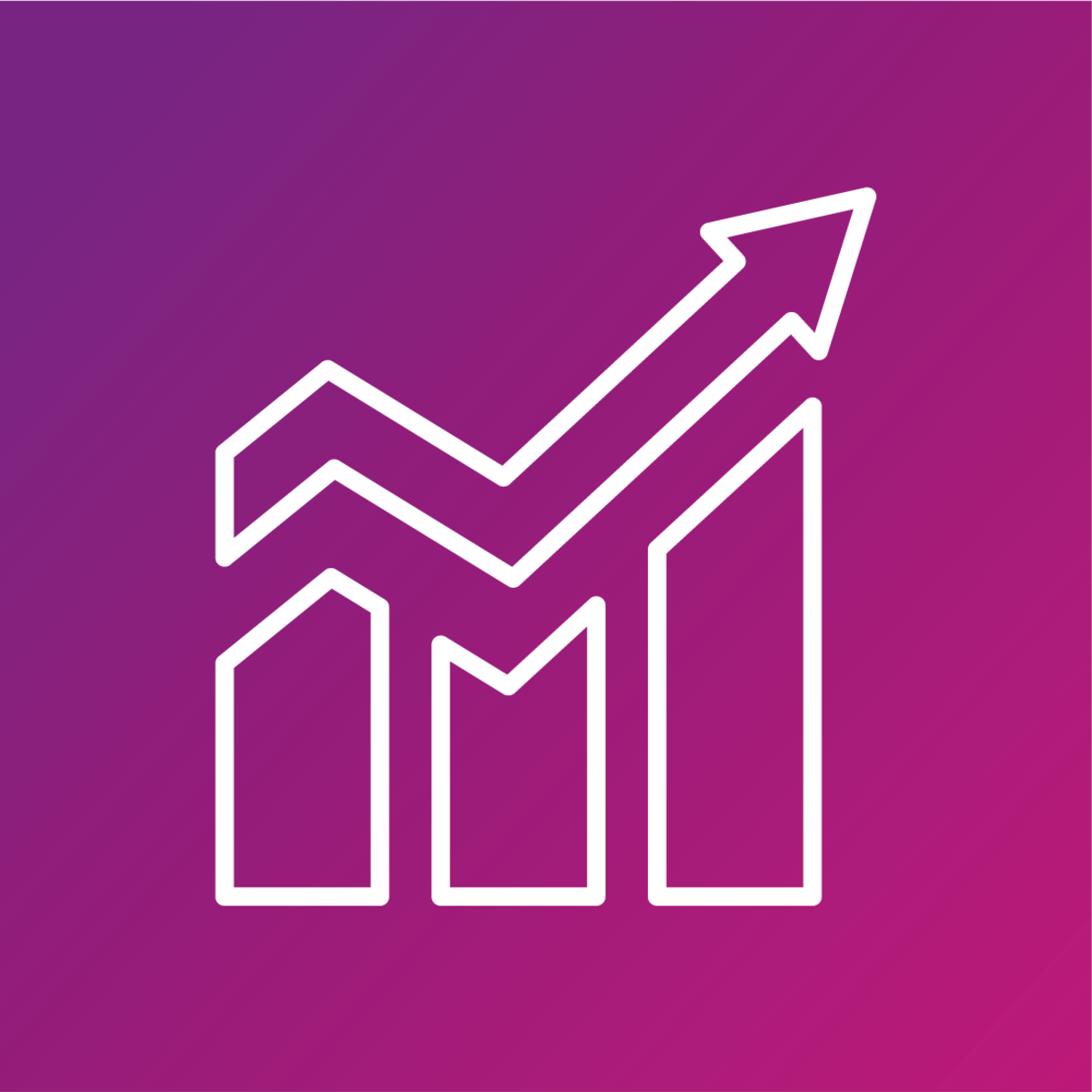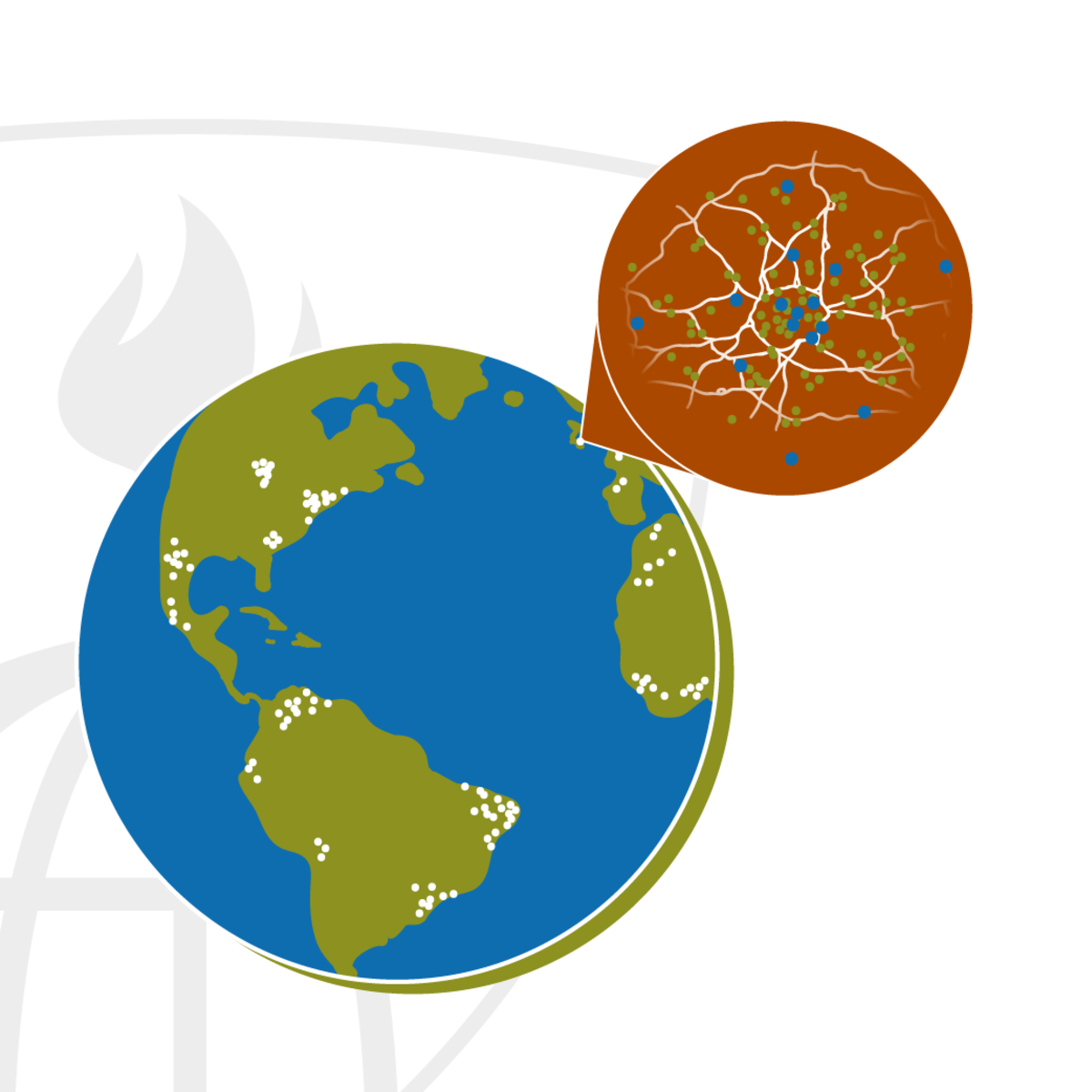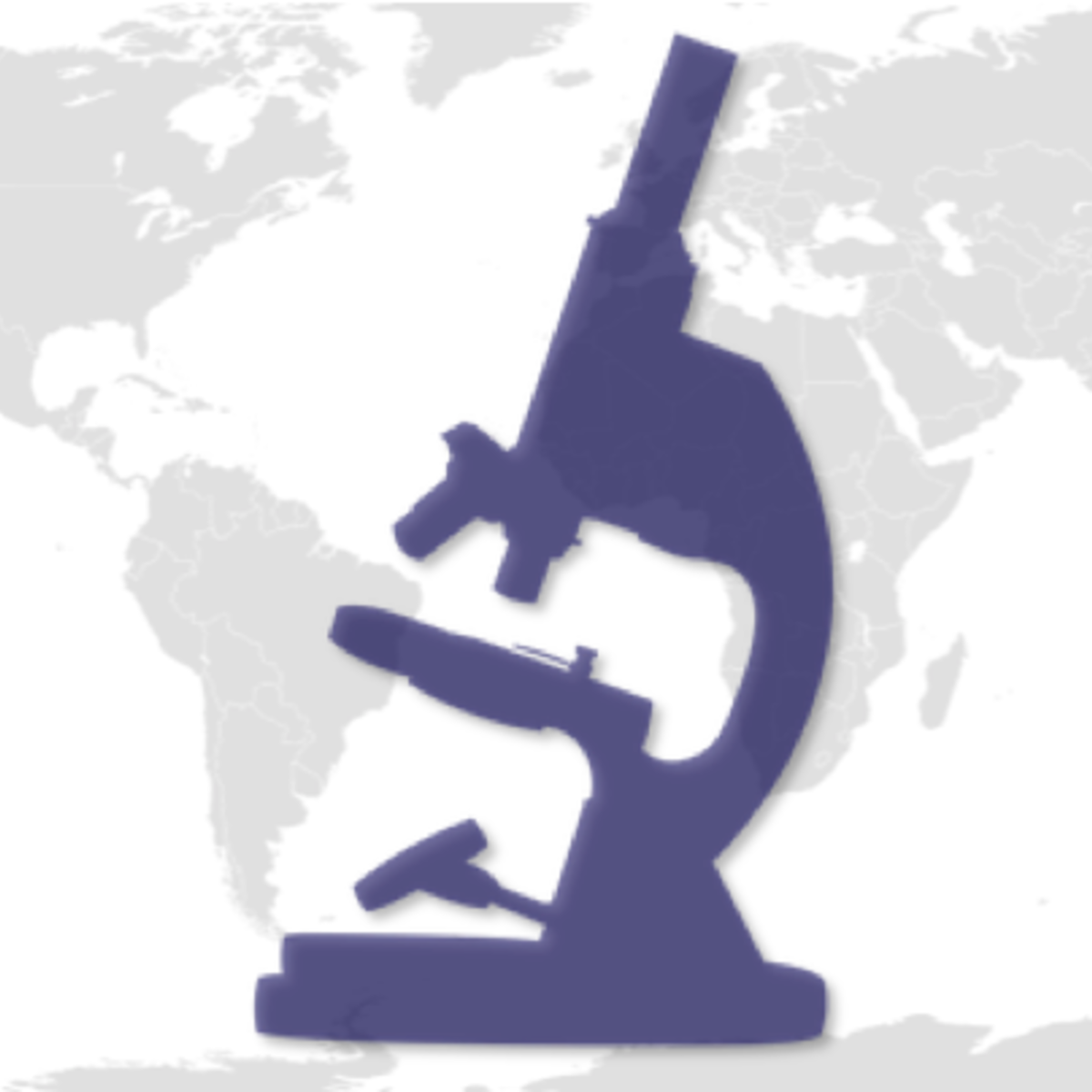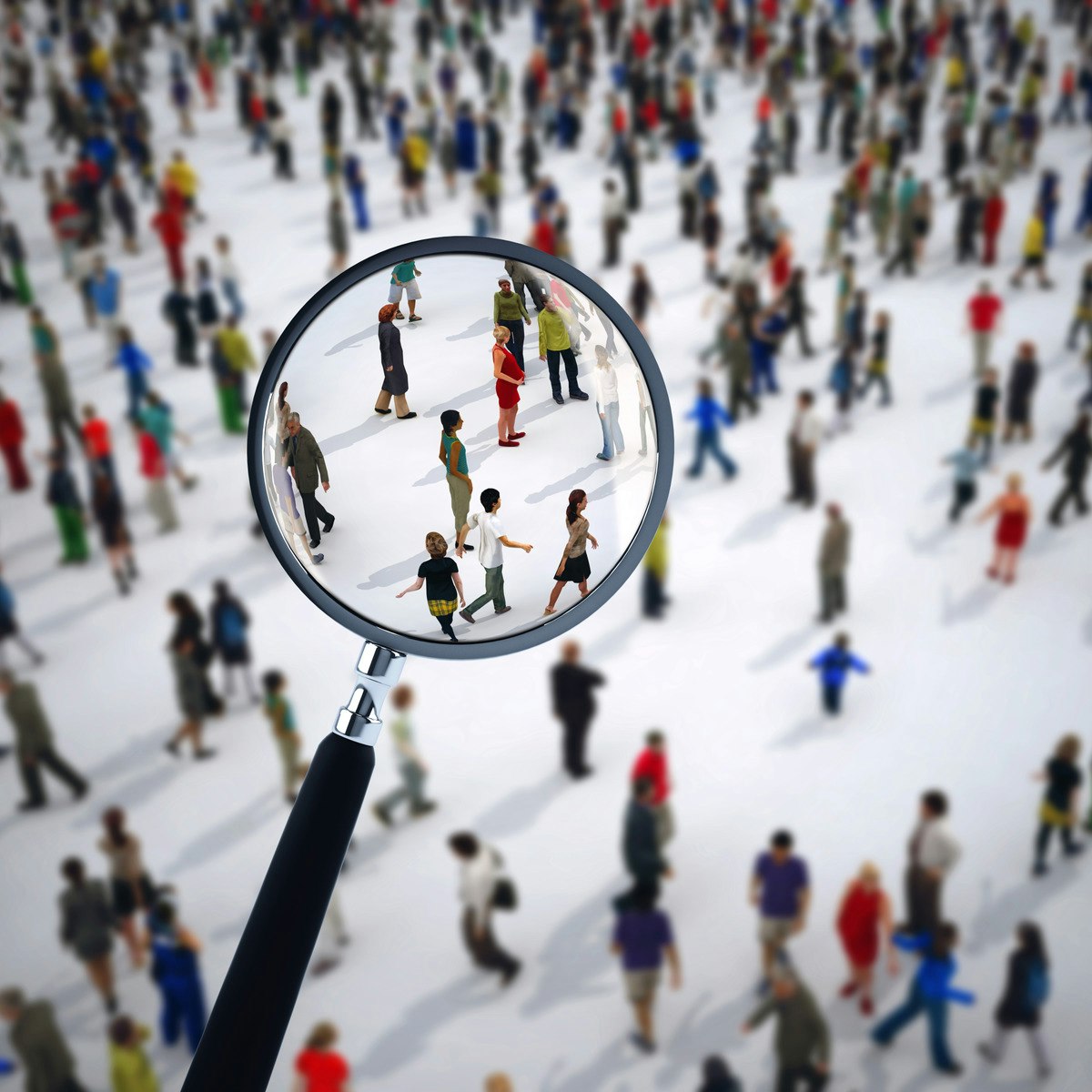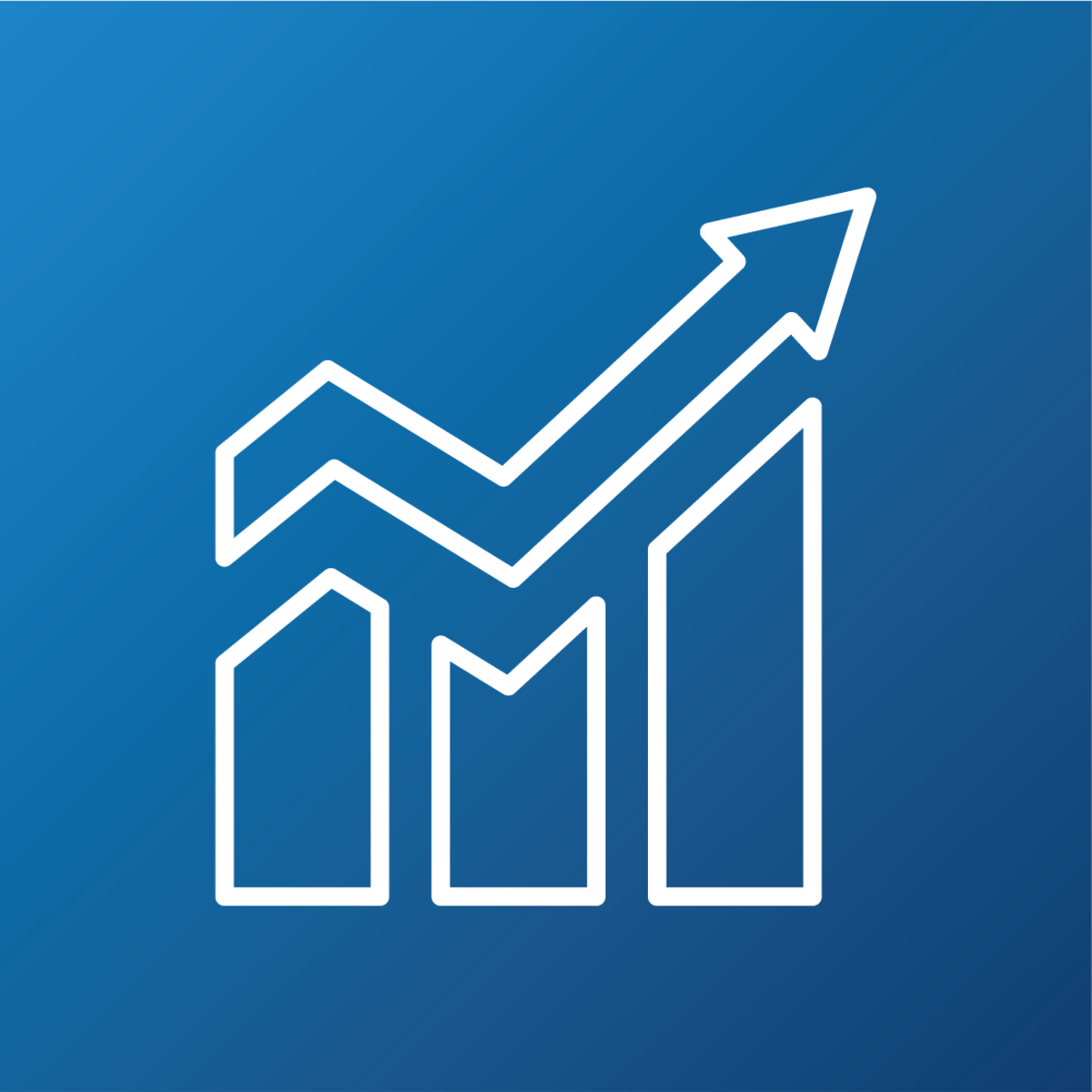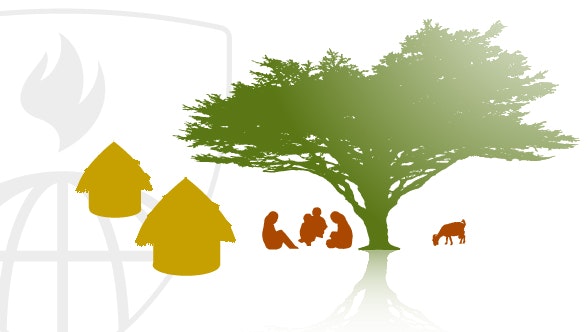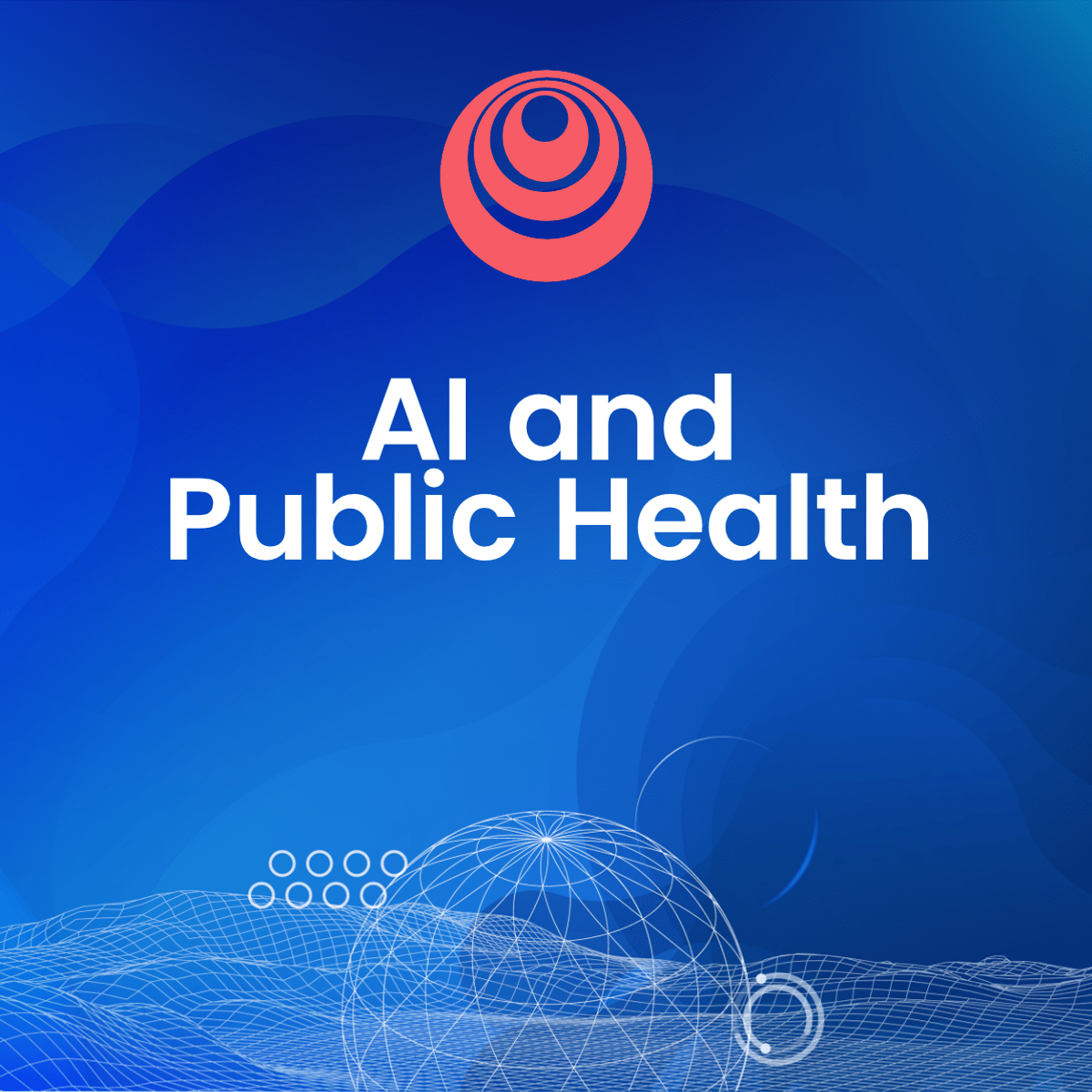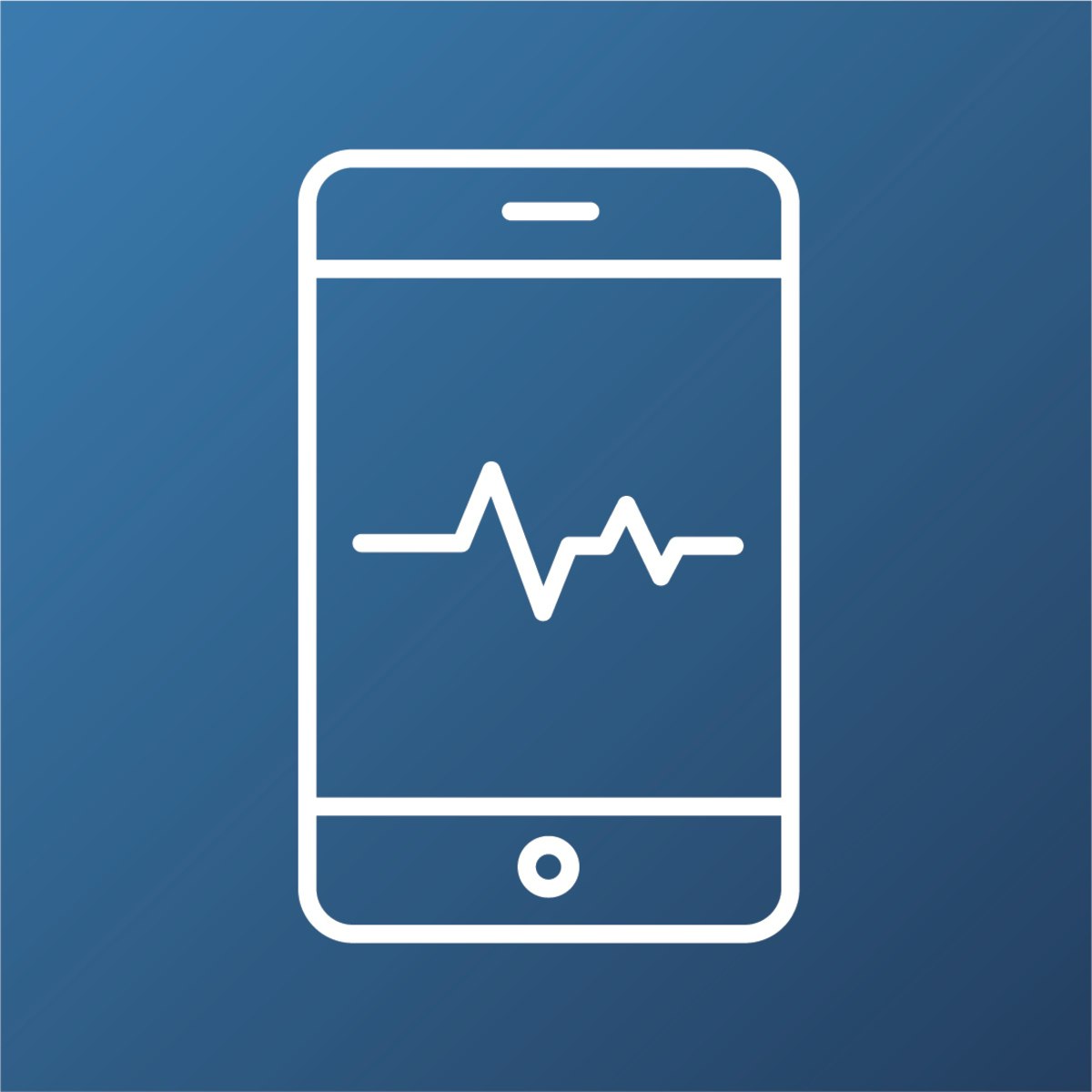Public Health Officer
A Comprehensive Guide to a Career as a Public Health Officer
Public Health Officers are vital to community well-being, tasked with the significant responsibility of protecting and improving the health of populations. Unlike clinical practitioners who focus on individual patients, these professionals develop and implement broad strategies to prevent illness, manage diseases, and promote healthy environments. Their work often involves a deep understanding of healthcare systems, epidemiology, biostatistics, environmental health, and health services administration, blending scientific knowledge with practical skills to achieve tangible health outcomes for communities.
The role of a Public Health Officer can be incredibly engaging and dynamic. Imagine being at the forefront of identifying emerging health risks, shaping policies that can impact thousands or even millions of lives, or leading community-wide initiatives to combat an epidemic. These professionals also play a crucial part in health education, empowering individuals and communities with the knowledge to make informed decisions about their well-being. The opportunity to make a broad, positive impact on society and contribute to a healthier future is a significant draw for many in this field.
For those considering this career, including students exploring options or professionals contemplating a career change, public health offers a path to meaningful work. It's a field that demands both intellectual rigor and a compassionate commitment to serving others. While the journey requires dedication and often advanced education, the potential to contribute to the collective good can be immensely rewarding.
What Does a Public Health Officer Do?
Public Health Officers are central figures in the healthcare system dedicated to promoting and safeguarding the health of entire populations. Their focus is on community-wide strategies for disease prevention, health promotion, and ensuring healthy environments. This involves a multifaceted approach that combines scientific knowledge with practical implementation skills to achieve measurable improvements in public health. Their work is crucial in addressing a wide array of health issues, from infectious disease outbreaks and chronic illnesses to environmental hazards and health disparities.
Defining the Role and Core Duties
A Public Health Officer's core mission is to protect and improve the health of communities through education, policy-making, and research. Key responsibilities often include monitoring public health trends and identifying health risks within a population. They are involved in developing, implementing, and advocating for public health policies and programs designed to prevent disease and promote healthy behaviors. This can range from orchestrating vaccination campaigns and managing responses to disease outbreaks to ensuring the safety of food and water supplies.
Furthermore, Public Health Officers conduct research and analyze data to better understand health challenges and improve public health initiatives. They collaborate extensively with healthcare providers, community leaders, policymakers, and other government agencies to ensure health programs are effective and equitable. Educating communities about health issues and preventive practices is also a fundamental aspect of their role. In times of health emergencies or outbreaks, they often oversee the response, coordinating efforts to protect public safety.
The specific duties of a Public Health Officer can vary based on their area of specialization, the needs of the community they serve, and the organization they work for. Some may focus more on epidemiological surveillance, while others might be heavily involved in policy development, health education program management, or ensuring compliance with health regulations. Regardless of the specific focus, their work is grounded in evidence-based research and data analysis to inform decision-making.
Historical Perspectives on the Public Health Officer
The concept of a public health official dates back to efforts to control outbreaks of diseases like cholera and typhus in Victorian England, where local authorities recognized the need for organized responses to community health threats. Over time, the role has evolved significantly, expanding from primarily infectious disease control to encompass a broader range of health concerns, including chronic diseases, environmental health, mental health, and health equity. Early public health efforts often focused on sanitation and hygiene to combat widespread illnesses.
The 20th century saw major advancements in public health, including the development of vaccines and antibiotics, which dramatically reduced the burden of many infectious diseases. This era also brought a greater understanding of the social and behavioral determinants of health, leading to more comprehensive public health strategies. Public Health Officers became increasingly involved in health education, promoting healthy lifestyles, and advocating for policies to address issues like tobacco use and occupational safety. The establishment of national and international health organizations further professionalized the field and expanded the scope of public health work.
More recently, events like the COVID-19 pandemic have highlighted the critical importance of Public Health Officers and the public health system. These professionals were at the forefront of pandemic response, involved in surveillance, testing strategies, public communication, vaccination efforts, and policy recommendations. This experience has underscored the need for robust public health infrastructure and skilled professionals capable of addressing complex and rapidly evolving health challenges, including emerging infectious diseases and the health impacts of climate change.
Primary Employment Sectors
Public Health Officers find employment across a diverse range of sectors, reflecting the broad scope of public health activities. Government agencies are major employers, including local and state health departments, as well as national organizations like the Centers for Disease Control and Prevention (CDC) in the United States or Public Health England (PHE) in the UK. Within these agencies, officers may work on disease surveillance, policy development, program implementation, and emergency preparedness.
Healthcare facilities, such as hospitals and clinics, also employ Public Health Officers, often in roles related to infection control, community health outreach, and health education. Non-profit organizations and community-based groups are another significant sector, where officers might focus on specific health issues, advocate for underserved populations, or manage health promotion programs. International organizations like the World Health Organization (WHO) and various non-governmental organizations (NGOs) offer opportunities for Public Health Officers to work on global health initiatives, addressing health challenges in different countries and cultural contexts.
The private sector also provides roles for Public Health Officers, particularly in pharmaceutical companies for research or in corporate wellness programs. Academic institutions and research organizations employ public health professionals as researchers, educators, and policy analysts. With the increasing focus on data and technology in health, opportunities are also emerging in health tech startups and consulting firms that support public health efforts. The versatility of the public health skill set allows officers to contribute their expertise in a wide array of settings.
Core Competencies and Skills
A successful career as a Public Health Officer requires a diverse set of competencies and skills. These range from technical expertise in areas like data analysis and epidemiology to crucial soft skills such as communication and leadership. These abilities enable professionals to effectively address complex health challenges, work with diverse communities, and drive positive health outcomes.
Expertise in Epidemiology and Data Analysis
Epidemiology, the study of disease patterns and causes within populations, is a cornerstone of public health practice. Public Health Officers must be proficient in epidemiological methods to monitor health trends, investigate outbreaks, and identify risk factors for diseases and injuries. This involves collecting and analyzing various types of data, including information from surveys, medical records, and environmental samples.
Strong data analysis skills are therefore essential. Public Health Officers use statistical software and techniques to interpret complex datasets, identify patterns, and draw meaningful conclusions about community health. This evidence-based approach informs the development of targeted interventions, health policies, and prevention strategies. The ability to manage databases, ensure data quality, and present findings clearly are also critical components of this skill set.
For those looking to build a strong foundation in these areas, numerous online courses offer comprehensive training in epidemiology and data analysis. These resources can help aspiring and current professionals develop the quantitative skills necessary for effective public health practice.
Understanding the fundamentals of how diseases spread and how to analyze health data is crucial for anyone in this field. These books offer valuable insights into these core areas.
Proficiency in Policy Development and Implementation
Public Health Officers play a significant role in shaping the health of communities through policy. This involves identifying gaps in current health policies, advocating for necessary changes, and developing new policies and programs that support community well-being. Effective policy development requires a deep understanding of the social, economic, and political factors that influence health, as well as the ability to translate research findings into actionable policy recommendations.
Once policies are developed, their successful implementation is key. Public Health Officers are often responsible for overseeing the rollout of new programs and initiatives, ensuring they reach the intended populations and are carried out effectively. This can involve strategic planning, resource allocation, and collaboration with various stakeholders, including government agencies, community organizations, and healthcare providers. Monitoring and evaluating the impact of policies and programs is also crucial to ensure they are achieving their goals and to identify areas for improvement.
Developing skills in policy analysis, advocacy, and program planning is vital for Public Health Officers. Online courses can provide valuable training in these areas, helping individuals learn how to navigate the policy landscape and implement effective public health interventions.
For those interested in the intersection of policy and public health, these texts provide important context and strategies.
Skills in Communication and Community Engagement
Effective communication is a critical skill for Public Health Officers, who must convey complex health information to diverse audiences, including the public, policymakers, healthcare professionals, and community groups. This includes the ability to explain health risks, promote healthy behaviors, and build trust with communities. Strong communication skills are essential for public health campaigns, health education initiatives, and crisis communication during emergencies.
Community engagement is equally important. Public Health Officers need to work collaboratively with communities to understand their unique health needs, priorities, and cultural contexts. This involves building partnerships with community leaders, organizations, and residents to develop and implement health programs that are culturally appropriate and responsive to local needs. Actively listening to community concerns and involving them in the decision-making process fosters trust and promotes the success of public health interventions.
Many online courses focus on developing health communication and community engagement skills, which are indispensable for professionals in this field. These courses can help learners master techniques for effective messaging, cross-cultural communication, and participatory approaches to public health.
These books offer practical guidance on communicating effectively and engaging communities in public health efforts.
Competence in Crisis Management and Emergency Response
Public Health Officers are often on the front lines during public health emergencies, such as disease outbreaks, natural disasters, or bioterrorism events. Therefore, skills in crisis management and emergency response are paramount. This includes the ability to rapidly assess situations, make critical decisions under pressure, and coordinate response efforts with multiple agencies and stakeholders.
Preparedness is a key aspect of this competency. Public Health Officers are involved in developing emergency preparedness plans, conducting drills and exercises, and ensuring that resources and systems are in place to respond effectively to various threats. During a crisis, they may be responsible for tasks such as disease surveillance, contact tracing, managing quarantine and isolation measures, distributing medical supplies, and communicating critical information to the public.
The ability to remain calm, lead effectively, and adapt to rapidly changing circumstances are crucial attributes for Public Health Officers in emergency situations. Specialized training through courses can help individuals develop these vital crisis management skills.
Understanding how to manage and respond to public health crises is a critical area of study. These books provide in-depth knowledge on disaster response and emergency management in public health.
Educational Pathways
Embarking on a career as a Public Health Officer typically involves a dedicated educational journey. Understanding the various academic routes, from undergraduate studies to advanced degrees and certifications, is crucial for aspiring professionals. This field often requires a strong foundation in health sciences, social sciences, and analytical methods.
Foundational Undergraduate Degrees
A bachelor's degree is generally the first step towards a career as a Public Health Officer. Common undergraduate majors include public health, health science, biology, sociology, or other related fields. These programs provide foundational knowledge in areas such as epidemiology, biostatistics, environmental health, health policy, and health behavior. An undergraduate degree can equip individuals with the basic skills needed for entry-level positions or serve as a strong basis for graduate studies.
During undergraduate studies, gaining practical experience through internships, volunteer work, or part-time jobs in public health settings is highly beneficial. This hands-on experience can provide valuable insights into the field and help students develop practical skills that complement their academic learning. Exploring health and medicine or social sciences courses on platforms like OpenCourser can also supplement a formal degree program, offering specialized knowledge or skills in particular areas of interest.
These introductory courses can provide a solid overview of public health principles for those starting their educational journey or considering the field.
For a broad understanding of the field at an introductory level, these books are excellent starting points.
Advanced Graduate Programs (MPH, DrPH)
For many leadership and specialized roles in public health, a master's degree is often expected or required. The Master of Public Health (MPH) is a widely recognized and common graduate degree for professionals in this field. MPH programs typically offer specializations in areas such as epidemiology, biostatistics, environmental health, health policy and management, social and behavioral sciences, or global health. These programs delve deeper into public health theory, research methods, and practical skills.
A Doctor of Public Health (DrPH) is a more advanced, leadership-oriented degree designed for individuals who aspire to high-level administrative or policy positions. DrPH programs focus on developing skills in leadership, management, policy analysis, and applied research. Some Public Health Officers may also hold other advanced degrees, such as a Doctor of Veterinary Medicine (DVM) if specializing in zoonotic diseases, or a PhD if heavily involved in research.
Online learning platforms provide numerous options for graduate-level coursework and even full degree programs in public health, offering flexibility for working professionals or those with other commitments. OpenCourser's Public Policy category can also be a valuable resource for courses related to health policy.
These courses offer a glimpse into advanced public health topics typically covered in graduate programs.
These texts are often considered essential reading in many MPH and DrPH programs, providing comprehensive overviews of public health principles and practices.
Value of Certifications and Continuing Education
Beyond formal degrees, certifications can enhance a Public Health Officer's credentials and demonstrate expertise in specific areas. The Certified in Public Health (CPH) credential, offered by the National Board of Public Health Examiners (NBPHE) in the US, is a common certification that signifies a broad knowledge of public health sciences. Other specialized certifications may be available in areas like infection control, health education (e.g., Certified Health Education Specialist - CHES), or environmental health.
The field of public health is constantly evolving with new research, emerging health threats, and changing policies. Therefore, lifelong learning and continuing education are essential for Public Health Officers to stay current in their knowledge and skills. This can involve attending workshops, conferences, webinars, and taking additional courses. Many professional organizations offer continuing education opportunities for their members. Online platforms like OpenCourser are excellent resources for finding courses to update skills or explore new areas within public health. The "Save to list" feature on OpenCourser can help learners organize courses they are interested in for ongoing professional development.
These courses are examples of specialized training that can contribute to continuing education and skill enhancement in public health.
The Role of Interdisciplinary Studies
Public health is an inherently interdisciplinary field, drawing on knowledge and methods from a variety of disciplines. A strong foundation in the biological sciences, including biology, microbiology, and genetics, is important for understanding the mechanisms of disease and the physiological impacts of health interventions. This knowledge is particularly crucial for those working in areas like infectious disease epidemiology or environmental toxicology.
Equally important are insights from the social sciences, such as sociology, anthropology, psychology, and economics. These disciplines help Public Health Officers understand the social, cultural, behavioral, and economic factors that influence health and health disparities. For example, understanding community dynamics (sociology) or individual health behaviors (psychology) is critical for designing effective health promotion programs and policies. An interdisciplinary approach enables Public Health Officers to address health problems more holistically and develop more comprehensive and effective solutions.
Exploring courses in Biology or Anthropology can broaden the perspective of public health professionals.
Career Progression and Opportunities
A career as a Public Health Officer offers diverse pathways for growth and specialization. The field provides opportunities to make a significant impact at various levels, from local communities to global health initiatives. Understanding the typical career trajectory and the range of specializations can help aspiring professionals navigate their journey in public health.
Beginning the Journey: Entry-Level Roles
With a bachelor's degree in public health or a related field, individuals can often find entry-level positions that provide a solid foundation in the field. Common entry-level roles include Health Educator, where professionals design and implement programs to teach communities about healthy behaviors and disease prevention. Another pathway is as a Public Health Analyst or Research Assistant, involving tasks like data collection, basic data analysis, and supporting senior staff in research projects or program evaluations.
Community Health Worker is another accessible entry point, particularly for those passionate about direct community engagement and addressing health disparities at a grassroots level. These roles might involve connecting individuals to health services, providing health information, and advocating for community needs. While an associate degree or even a high school diploma with relevant experience might suffice for some community health worker positions, a bachelor's degree can open more doors and provide a stronger basis for advancement.
These positions offer valuable experience and exposure to different facets of public health, paving the way for future career growth. Engaging with online courses during this stage can help build specialized skills and knowledge relevant to specific areas of interest within public health.
Advancing in Mid-Career: Program Leadership and Policy
After gaining several years of experience and often with an advanced degree like an MPH, Public Health Officers can move into mid-career roles with greater responsibility and leadership. Positions such as Program Manager or Program Director involve overseeing specific public health initiatives, managing budgets, supervising staff, and ensuring programs meet their objectives. These roles require strong organizational, leadership, and project management skills.
Another common mid-career path is a Policy Advisor or Health Policy Analyst. In these roles, professionals conduct research on health issues, analyze the potential impacts of different policy options, and provide recommendations to policymakers. This requires a deep understanding of the policy-making process, strong analytical abilities, and effective communication skills to present complex information to diverse audiences. Advancement to senior Public Health Officer roles often occurs as individuals gain more expertise and experience.
Continuing professional development, including specialized training and certifications, can support advancement to these mid-level positions. Networking with other professionals in the field also becomes increasingly important for identifying opportunities and gaining insights.
Reaching Senior Leadership Positions
With significant experience and a strong track record of success, Public Health Officers can ascend to senior leadership positions. Roles such as Public Health Director, Health Commissioner, or Chief Medical Officer (in some contexts) involve overseeing entire health departments or major public health divisions. These positions carry substantial responsibility for setting strategic direction, managing large budgets and teams, representing the organization to the public and policymakers, and ensuring the overall health and safety of the population served.
Attaining these top-tier roles usually requires extensive experience in various aspects of public health, proven leadership abilities, and often an advanced doctoral degree like a DrPH or PhD, or a medical degree (MD) combined with public health qualifications. Strong political acumen, strategic thinking, and the ability to navigate complex organizational and political environments are also crucial for success at this level.
Mentorship from experienced leaders and a commitment to continuous learning are often key for those aspiring to senior leadership in public health. These roles offer the opportunity to shape public health on a large scale and leave a lasting legacy.
Exploring Specialization Areas
Public health offers a wide array of specialization areas, allowing professionals to focus on specific populations, health issues, or approaches. Global health is a popular specialization, involving work on health challenges that transcend national borders, such as infectious disease control in developing countries, maternal and child health initiatives, or humanitarian response during international crises. This often requires cross-cultural competency and a willingness to work in diverse settings.
Environmental Health is another critical specialization, focusing on how environmental factors—such as air and water quality, food safety, waste management, and climate change—impact human health. Environmental Health Officers work to identify and mitigate environmental hazards, enforce regulations, and promote healthy environments. Other common specializations include epidemiology, biostatistics, health policy and management, health promotion and education, maternal and child health, mental health, and infectious disease control. Choosing a specialization often aligns with personal interests, skills, and career goals, and may involve focused coursework or certifications.
Online courses can be an excellent way to explore or deepen knowledge in these specialized areas.
Challenges in Public Health Practice
Working as a Public Health Officer is a rewarding career, but it also comes with its own set of challenges. These professionals often grapple with complex issues that require resilience, adaptability, and innovative problem-solving. Understanding these challenges is important for anyone considering a path in public health.
Navigating Funding and Resource Limitations
One of the most persistent challenges in public health is securing adequate and sustainable funding. Public health initiatives, from disease prevention programs to emergency preparedness, require significant financial investment. However, public health budgets can be subject to political shifts and economic downturns, leading to resource limitations that can hamper the effectiveness of programs and services.
Public Health Officers often need to be adept at grant writing, budget management, and advocating for the value of public health investments to secure necessary funding. Working with limited resources may also require innovative approaches to maximize impact and prioritize interventions based on community needs and available data. This can involve making difficult decisions about which programs to fund or scale back, which can be a source of stress for professionals dedicated to improving community health.
Developing skills in financial management and resource allocation is crucial. Some courses touch upon the financial aspects of managing public health programs.
Understanding how to navigate financial constraints is a key skill. These books may offer insights into resource allocation and management within public health systems.
Addressing Political and Ethical Dilemmas
Public health decisions often occur within a complex political landscape and can involve significant ethical considerations. Policies aimed at protecting public health, such as mandatory vaccinations, restrictions during a pandemic, or regulations on unhealthy products, can face political opposition or raise concerns about individual liberties versus the collective good. Public Health Officers must be able to navigate these political waters, communicate effectively with diverse stakeholders, and build consensus around evidence-based interventions.
Ethical dilemmas are also common. For example, allocating scarce resources, ensuring health equity, protecting patient privacy while conducting disease surveillance, and addressing the ethical dilemmas public health officials face during pandemics all involve complex ethical judgments. Public Health Officers need a strong ethical framework and the ability to apply ethical principles to their decision-making. They must also be prepared to defend their decisions and actions, often under public scrutiny.
Courses that explore ethics in public health can provide a valuable framework for navigating these complex situations.
These books delve into the ethical and legal complexities inherent in public health work.
Confronting Health Disparities
A major challenge and a core focus of public health is addressing health disparities – the differences in health outcomes and their determinants between different segments of the population. These disparities are often linked to social, economic, environmental, and systemic factors, such as poverty, discrimination, lack of access to quality education and healthcare, and unsafe living conditions. Public Health Officers work to identify these disparities, understand their root causes, and develop interventions to promote health equity.
This requires a commitment to social justice and an understanding of how social determinants of health impact communities. It involves advocating for policies that address these underlying factors, tailoring programs to meet the specific needs of underserved populations, and working to eliminate barriers to health. Addressing health disparities can be a long and complex process, requiring sustained effort and collaboration across multiple sectors.
Many public health courses emphasize the importance of health equity and provide strategies for addressing disparities.
These books provide critical perspectives on social justice and health equity.
Adapting to Evolving and Emerging Health Threats
The public health landscape is constantly changing, with new and re-emerging health threats posing ongoing challenges. These can include novel infectious diseases like COVID-19, the rise of antibiotic-resistant bacteria, the health impacts of climate change (such as extreme weather events and changes in disease vectors), and public health crises stemming from substance abuse or mental health issues. Public Health Officers must be vigilant in monitoring for these threats and be prepared to adapt their strategies and responses accordingly.
This requires a commitment to lifelong learning, staying abreast of the latest scientific research, and being flexible and innovative in problem-solving. It also necessitates strong surveillance systems to detect threats early, robust emergency preparedness plans, and the ability to communicate effectively with the public about evolving risks and recommended actions. The dynamic nature of public health means that officers must always be ready to face the unexpected and lead their communities through uncertain times.
Courses focusing on communicable diseases, environmental health, and emergency preparedness can help professionals build the skills to tackle emerging threats.
These books discuss various environmental and emerging health risks that public health professionals must be prepared to address.
Global Health and International Opportunities
For Public Health Officers with a passion for making a difference on a broader scale, the field of global health offers numerous opportunities. This area focuses on health issues that transcend national boundaries, requiring international cooperation and culturally sensitive approaches to improve health outcomes for populations around the world.
Engagement with International Organizations (WHO, NGOs)
Many international organizations are at the forefront of global health efforts and employ Public Health Officers in various capacities. The World Health Organization (WHO), a specialized agency of the United Nations, is a primary example, offering roles in areas like disease surveillance, policy development, emergency response, and technical assistance to countries. Working for WHO can involve assignments at its headquarters or in regional and country offices, contributing to initiatives that impact health globally.
Non-governmental organizations (NGOs) also play a crucial role in global health, implementing programs on the ground, advocating for health equity, and responding to humanitarian crises. Organizations like Doctors Without Borders, Partners In Health, and Save the Children, among many others, rely on Public Health Officers for their expertise in program management, epidemiology, health education, and more. These roles often involve working directly with communities in resource-limited settings, addressing issues such as infectious diseases, maternal and child health, nutrition, and access to healthcare. Academic institutions and research organizations also engage in global health research and capacity building, offering further avenues for international work.
Exploring courses in global health can provide a better understanding of the complexities and opportunities in this specialized area.
These books offer insights into the multifaceted world of global public health.
Importance of Cross-Cultural Competency
Working effectively in global health demands a high degree of cross-cultural competency. Public Health Officers operating in international settings must be able to understand and respect diverse cultural beliefs, values, and practices related to health and illness. What may be an effective health intervention in one cultural context might be inappropriate or ineffective in another. Therefore, adapting strategies to align with local customs and perspectives is crucial for program success and building trust with communities.
This involves more than just language skills; it requires an ability to listen actively, observe keenly, and engage with humility. Developing strong interpersonal skills, empathy, and an openness to learning from different cultures are essential. Public Health Officers in global settings often work with local partners and community members, and the ability to build respectful and collaborative relationships across cultural divides is paramount. Misunderstandings or a lack of cultural sensitivity can undermine even the best-intentioned public health efforts.
While specific courses on cross-cultural communication for health professionals are invaluable, broader studies in Anthropology or International Studies can also build this competency.
Strategies for Managing Pandemics and Global Health Crises
Pandemics and other global health crises, such as large-scale outbreaks of Ebola or Zika, underscore the interconnectedness of our world and the critical need for international cooperation in public health. Public Health Officers working in global health play a vital role in preparing for and responding to these events. This can involve strengthening surveillance systems to detect outbreaks early, developing and implementing rapid response strategies, coordinating the deployment of resources and personnel, and working with international partners to contain the spread of disease.
During a global health crisis, effective communication and information sharing across borders are essential. Public Health Officers may be involved in liaising with different governments and organizations, ensuring that data is shared transparently, and that public health messages are consistent and accurate. They also contribute to research efforts to understand new pathogens, develop vaccines and treatments, and evaluate the effectiveness of control measures. The lessons learned from each crisis help to improve global preparedness for future events.
These courses address the complexities of managing widespread health crises and infectious diseases.
Participation in Collaborative International Projects
Many global health initiatives are undertaken as collaborative international projects, bringing together governments, NGOs, academic institutions, and private sector partners from different countries. Public Health Officers may be involved in designing, managing, and evaluating these projects, which can address a wide range of issues such as strengthening health systems, improving maternal and child health, combating non-communicable diseases, or improving access to clean water and sanitation.
Working on international projects requires strong teamwork, diplomacy, and project management skills. It often involves navigating different regulatory environments, funding mechanisms, and cultural norms. The ability to build and maintain effective partnerships with a diverse range of stakeholders is crucial for the success of these collaborations. These projects offer Public Health Officers the opportunity to contribute to sustainable health improvements and build local capacity in partner countries.
Courses focusing on project management and global health systems can be beneficial for those interested in international collaborative work.
Technology and Innovation in Public Health
Technology and innovation are rapidly transforming the landscape of public health, offering new tools and approaches to address long-standing challenges and emerging threats. Public Health Officers who embrace these advancements can enhance their ability to monitor health, deliver interventions, and improve population health outcomes. From data analytics to digital health tools, technology is playing an increasingly vital role.
Leveraging Data Analytics and Predictive Modeling
The explosion of health-related data, often referred to as "big data," presents both opportunities and challenges for public health. Advanced data analytics techniques allow Public Health Officers to analyze large and complex datasets to identify patterns, predict disease outbreaks, understand risk factors, and evaluate the effectiveness of interventions with greater precision. This includes using geographic information systems (GIS) to map disease clusters or social determinants of health, and applying statistical modeling to forecast health trends.
Predictive modeling, a subset of data analytics, uses historical data and statistical algorithms to forecast future events. In public health, this can be used to predict the spread of infectious diseases, identify populations at high risk for certain conditions, or anticipate demands on healthcare services. These insights enable more proactive and targeted public health strategies. Proficiency in data management, statistical software (like R or Python), and data visualization are becoming increasingly important skills for Public Health Officers.
Online courses in data science, biostatistics, and public health informatics can equip professionals with these critical analytical skills. OpenCourser features a wide selection of courses in Data Science that can be highly relevant.
These books provide foundational knowledge in the application of data and informatics in the health sector.
Utilizing Telehealth and Digital Health Tools
Telehealth, the delivery of health services and information using telecommunications technologies, has expanded significantly, particularly in the wake of the COVID-19 pandemic. For public health, telehealth can improve access to care, especially for remote or underserved populations, facilitate remote monitoring of patients, and support health education and counseling. Public Health Officers may be involved in developing or promoting telehealth programs to address specific community health needs.
Beyond telehealth, a wide range of digital health tools are being used in public health. Mobile health (mHealth) apps can support behavior change, disease management, and data collection. Wearable devices can track physical activity, sleep, and other physiological indicators, providing valuable data for individuals and researchers. Electronic health records (EHRs) can improve the efficiency and quality of care, and when aggregated, provide rich data sources for public health surveillance and research. Public Health Officers need to understand the potential and limitations of these tools and how they can be effectively integrated into public health strategies.
Courses focusing on digital health and health informatics can help professionals stay current with these rapidly evolving technologies.
This book explores the integration of technology in healthcare and public health.
Exploring AI Applications in Disease Surveillance
Artificial intelligence (AI) and machine learning are showing immense promise in revolutionizing disease surveillance and outbreak detection. AI algorithms can analyze vast amounts of data from diverse sources—such as news reports, social media, airline travel data, and clinical records—to identify early signals of potential outbreaks much faster than traditional methods. This can provide Public Health Officers with a critical head start in investigating and responding to emerging threats.
AI can also assist in predicting the spread and severity of outbreaks, identifying high-risk populations, and optimizing resource allocation for control measures. For example, machine learning models can analyze epidemiological data to forecast infection rates or identify patterns that might indicate an unusual health event. As AI technologies become more sophisticated and accessible, they will likely become indispensable tools for modern public health surveillance and response. An understanding of AI principles and applications is becoming increasingly valuable for Public Health Officers. Exploring Artificial Intelligence courses can provide a good starting point.
This course provides an introduction to how AI can be applied in the public health domain.
This book discusses the role of AI and data science in managing pandemics.
Addressing Ethical Considerations in Health Technology
While technology offers tremendous potential for improving public health, its use also raises important ethical considerations. Issues of data privacy and security are paramount, especially when dealing with sensitive health information collected through digital tools or analyzed by AI systems. Public Health Officers must ensure that data is collected, stored, and used responsibly, with appropriate safeguards to protect individual confidentiality and prevent misuse.
Bias in algorithms is another significant concern. If AI models are trained on biased data, they can perpetuate or even exacerbate existing health disparities. For example, an algorithm used to identify high-risk patients might perform less accurately for certain demographic groups if those groups were underrepresented in the training data. Ensuring fairness, transparency, and accountability in the development and deployment of health technologies is crucial. Public Health Officers need to be aware of these ethical challenges and advocate for responsible innovation that benefits all segments of the population equitably.
Courses on public health ethics and health informatics often cover these important considerations.
This book explores some of the ethical dimensions related to public health interventions.
Ethical and Legal Considerations
The practice of public health is deeply intertwined with ethical principles and legal frameworks. Public Health Officers frequently navigate complex situations where individual rights, community well-being, and scientific evidence must be carefully balanced. A strong understanding of these considerations is essential for responsible and effective public health action.
Upholding Patient Privacy and Data Security
Protecting patient privacy and ensuring data security are fundamental ethical and legal obligations in public health. Public Health Officers often work with sensitive personal health information for purposes such as disease surveillance, outbreak investigation, and research. It is crucial that this data is collected, stored, used, and shared in ways that comply with privacy laws (like HIPAA in the U.S.) and ethical guidelines. This includes implementing robust security measures to prevent unauthorized access or breaches, and ensuring that data is used only for legitimate public health purposes.
The increasing use of digital health technologies and large datasets amplifies these concerns. Public Health Officers must be knowledgeable about data governance, anonymization techniques, and the ethical implications of using big data and AI in public health. Maintaining public trust requires transparency about how data is being used and a demonstrable commitment to protecting individual privacy.
Relevant courses often cover data privacy and security within health informatics or public health ethics modules.
Navigating Vaccination Mandates and Public Compliance
Vaccination is one of the most effective public health interventions for preventing infectious diseases. However, policies such as vaccination mandates for school entry or for certain occupations can be controversial, often sparking debates about individual autonomy, parental rights, and the role of government in protecting public health. Public Health Officers may be involved in developing, implementing, or enforcing such policies, and in communicating the scientific rationale and public health benefits of vaccination to the public.
Achieving high levels of public compliance with vaccination recommendations, even when not mandated, is a constant challenge. This requires addressing misinformation and vaccine hesitancy through clear, evidence-based communication, community engagement, and building trust. Public Health Officers must understand the concerns of individuals and communities and work to address them respectfully and effectively. Ethical considerations also arise in ensuring equitable access to vaccines and in balancing the benefits of herd immunity with individual choices.
Courses on health communication, health policy, and public health ethics often discuss issues related to vaccination and public compliance.
Balancing Health Equity and Resource Allocation
A core ethical principle in public health is the pursuit of health equity, meaning that everyone has a fair and just opportunity to be as healthy as possible. However, public health resources are often limited, leading to difficult decisions about how to allocate them. Public Health Officers frequently face the challenge of balancing the goal of improving overall population health with the need to address the specific needs of disadvantaged or marginalized groups who experience a disproportionate burden of illness.
Decisions about resource allocation – which programs to fund, which populations to target, which interventions to prioritize – have significant ethical implications. These decisions should be guided by principles of justice, fairness, and evidence of effectiveness. Public Health Officers must be transparent about the criteria used for resource allocation and engage with communities in these decision-making processes whenever possible. Striving for health equity often requires a deliberate focus on addressing the social determinants of health and investing in interventions that reduce health disparities.
Understanding these complex trade-offs is a key part of public health leadership. Explore relevant discussions in courses on health policy and public health ethics.
Books on health economics and public health ethics often tackle the complexities of resource allocation and equity.
Understanding Legal Frameworks in Public Health Policy
Public health practice operates within a framework of laws and regulations that grant authority to public health agencies and define their responsibilities. These laws cover a wide range of areas, including disease reporting, quarantine and isolation powers, food safety standards, environmental protection, and access to healthcare. Public Health Officers must have a working knowledge of the relevant legal frameworks that govern their work and ensure that their actions are consistent with these laws.
The law can be a powerful tool for advancing public health goals, for example, through legislation that restricts tobacco sales, mandates seatbelt use, or ensures safe drinking water. Public Health Officers may be involved in advocating for new laws or changes to existing laws to better protect public health. They may also be responsible for enforcing public health regulations and taking legal action when necessary to address public health threats. Understanding the legal basis for public health interventions is crucial for effective and legitimate action.
Courses on public health law and policy provide essential knowledge in this area.
These books offer comprehensive insights into the legal dimensions of public health practice.
Public Health Officer's Role in Pandemics
Pandemics, such as the COVID-19 crisis, thrust Public Health Officers into exceptionally prominent and critical roles. Their expertise in disease surveillance, outbreak investigation, risk communication, and policy implementation becomes paramount in guiding communities and nations through such unprecedented challenges. The actions and guidance of Public Health Officers can significantly influence the trajectory of a pandemic and its impact on society.
Drawing Lessons from COVID-19 and Historical Outbreaks
The COVID-19 pandemic provided numerous, often stark, lessons for public health. It highlighted the importance of early detection and rapid response, the need for robust and flexible public health infrastructure, and the critical role of clear, consistent, and trustworthy communication. Challenges in areas like testing capacity, contact tracing, supply chain management for personal protective equipment (PPE), and vaccine distribution underscored areas needing improvement for future pandemic preparedness. Historical outbreaks, from the 1918 influenza pandemic to more recent events like SARS, MERS, and Ebola, also offer valuable insights into effective (and ineffective) control measures and societal responses.
A key takeaway is the necessity of addressing health disparities, as pandemics often disproportionately affect vulnerable and marginalized populations. The pandemic also emphasized the interconnectedness of global health, showing how quickly a novel pathogen can spread across borders. Public Health Officers are instrumental in analyzing these lessons to strengthen preparedness plans, improve response strategies, and build more resilient public health systems. According to the Centers for Disease Control and Prevention (CDC), a core part of their mission involves learning from such events to better protect the nation from future health threats.
Courses examining past pandemics and public health responses can offer deep insights.
These books often reflect on historical events and the evolution of public health responses.
Managing Large-Scale Vaccination Campaigns
During pandemics caused by vaccine-preventable diseases, such as influenza or COVID-19, the rapid development and equitable distribution of effective vaccines become a top priority. Public Health Officers play a central role in managing vaccination campaigns. This is a complex logistical undertaking that involves planning and coordinating vaccine procurement, storage, and distribution; identifying priority groups for vaccination; establishing and overseeing vaccination sites; and training healthcare providers and volunteers.
Beyond logistics, successful vaccination campaigns require strong public outreach and communication to build vaccine confidence and address hesitancy. Public Health Officers are involved in developing and disseminating accurate information about vaccine safety and efficacy, countering misinformation, and working with community leaders to promote vaccine uptake. Monitoring vaccine administration, tracking coverage rates, and evaluating the effectiveness of the campaign are also crucial responsibilities.
Specialized courses may cover aspects of immunization programs and health campaign management.
Facilitating Interagency Coordination During Crises
Responding effectively to a pandemic requires a coordinated effort involving numerous government agencies at local, state, and national levels, as well as private sector organizations, healthcare providers, and community groups. Public Health Officers are often key figures in facilitating this interagency coordination. They work to ensure that all entities involved in the response are sharing information, aligning their strategies, and working towards common goals.
This can involve participating in emergency operations centers, leading or contributing to task forces, and establishing clear lines of communication and decision-making. Challenges in interagency coordination can include differing priorities, bureaucratic hurdles, and communication breakdowns. Strong leadership, diplomacy, and collaborative problem-solving skills are essential for Public Health Officers to navigate these complexities and foster a unified and effective response.
Courses in public health leadership and emergency management often highlight the importance of interagency collaboration.
Implementing Effective Public Communication Strategies
Clear, accurate, timely, and empathetic public communication is absolutely critical during a pandemic. Public Health Officers are often the primary source of information for the public, responsible for explaining the nature of the threat, the steps being taken to address it, and what individuals and communities can do to protect themselves and others. This requires translating complex scientific information into understandable language and delivering messages through various channels to reach diverse populations.
Building and maintaining public trust is paramount. This involves being transparent about what is known and unknown, acknowledging uncertainties, correcting misinformation promptly, and demonstrating empathy for the public's concerns and anxieties. Public Health Officers must also be skilled in media relations and using social media effectively to disseminate information and engage with the public. The way information is communicated can significantly impact public behavior, adherence to control measures, and overall confidence in the public health response.
Numerous courses focus on health communication, crisis communication, and public speaking, all of which are vital skills for Public Health Officers.
These books provide valuable frameworks for effective communication in public health emergencies.
Professional Development and Networking
A career in public health is one of continuous learning and growth. For Public Health Officers, staying current with the latest research, policies, and best practices is crucial for effectiveness. Professional development activities and robust networking are key components of a thriving and impactful career in this dynamic field.
Engaging with Key Professional Organizations
Joining and actively participating in professional organizations offers numerous benefits for Public Health Officers. Organizations like the American Public Health Association (APHA) provide access to journals and publications, conferences, webinars, and networking opportunities with peers from across the country and globe. APHA, for example, champions the health of all people and all communities and strengthens the public health profession. Their website offers extensive resources on public health issues and career development.
The Public Health Accreditation Board (PHAB) is another important entity, focused on advancing the quality and performance of public health departments through accreditation. While individuals don't join PHAB in the same way they join APHA, understanding PHAB's standards and processes can be valuable for those working in governmental public health. Many specialized public health disciplines also have their own professional organizations (e.g., for epidemiologists, health educators, or environmental health specialists) that offer tailored resources and networking opportunities.
Engaging with these organizations helps professionals stay informed, develop new skills, and contribute to the advancement of the field. Many also offer certifications or continuing education credits vital for maintaining credentials.
Attending Conferences and Workshops
Attending conferences and workshops is a vital way for Public Health Officers to engage in professional development. These events provide platforms for learning about the latest research findings, innovative programs, and emerging health challenges. They offer opportunities to hear from leading experts in the field, participate in skill-building workshops, and present one's own work or research.
Conferences also serve as important networking hubs, allowing professionals to connect with colleagues, potential collaborators, mentors, and employers from diverse backgrounds and geographic locations. Workshops often provide hands-on training in specific areas, such as data analysis software, grant writing, or communication techniques. Regularly participating in such events helps Public Health Officers to keep their knowledge and skills sharp and to bring new ideas and approaches back to their organizations.
Many online platforms also list virtual conferences and workshops, making professional development more accessible. OpenCourser, while focused on courses, can be a starting point for identifying subject areas where one might seek workshop-based training.
Seeking Mentorship Opportunities
Mentorship can play a crucial role in the career development of a Public Health Officer, particularly for those early in their careers or transitioning into new roles. An experienced mentor can provide guidance, advice, and support, helping a mentee navigate career challenges, develop leadership skills, and expand their professional network. Mentors can share insights from their own experiences, offer feedback on career goals, and help identify opportunities for growth.
Many professional organizations and academic institutions have formal mentorship programs. Alternatively, informal mentoring relationships can develop organically through networking and professional interactions. Seeking out a mentor who is respected in the field and whose career path aligns with one's own aspirations can be incredibly beneficial. For senior Public Health Officers, serving as a mentor can also be a rewarding way to give back to the profession and help shape the next generation of public health leaders.
While OpenCourser doesn't directly offer mentorship, the platform's focus on learning and career development aligns with the spirit of continuous growth that mentorship fosters. Exploring courses in Management can also develop skills often imparted by mentors.
Developing Research Publication Strategies
For Public Health Officers involved in research, whether in academic settings, government agencies, or non-profit organizations, disseminating findings through publication is a key aspect of professional activity and contribution to the field. Publishing research in peer-reviewed journals allows for the sharing of new knowledge, contributes to the evidence base for public health interventions, and can influence policy and practice.
Developing effective research publication strategies involves understanding the research landscape in one's area of specialization, identifying appropriate journals, and mastering scientific writing skills. This includes being able to clearly articulate research questions, describe methods rigorously, present results effectively, and discuss findings in the context of existing literature. Collaboration with other researchers, seeking feedback from peers and mentors, and understanding the peer-review process are also important components. For some, presenting at conferences is an initial step towards refining research for publication.
Courses on research methodology, scientific writing, and biostatistics can provide essential skills for those looking to publish their work.
These books cover essential aspects of research and its application in public health.
Alternative Career Paths
The skills and knowledge acquired by Public Health Officers are highly transferable, opening doors to a variety of alternative career paths beyond traditional public health roles. For individuals seeking a change or looking to apply their expertise in different settings, several intriguing options exist. This versatility is a significant advantage for those trained in public health.
Transitioning into Health Policy Focused Roles
Public Health Officers with a strong understanding of policy development, analysis, and advocacy are well-suited for roles focused specifically on health policy. This could involve working for government agencies at local, state, or federal levels, contributing to the legislative process, or advising elected officials on health-related matters. Think tanks, research organizations, and advocacy groups also employ health policy analysts to study health issues, evaluate policy proposals, and work to influence public opinion and policy decisions.
These roles often require strong analytical skills, the ability to synthesize complex information, and excellent written and verbal communication skills to convey policy recommendations effectively. An advanced degree, such as an MPH with a concentration in health policy or a Master of Public Policy (MPP), can be particularly beneficial for transitioning into these careers. The focus shifts from direct program implementation to shaping the broader systems and regulations that impact population health.
Opportunities in Corporate Wellness Programs
Many corporations are increasingly recognizing the importance of employee health and well-being, leading to the growth of corporate wellness programs. Public Health Officers can apply their skills in health promotion, program planning, and evaluation to design and manage these initiatives. The goal of corporate wellness programs is typically to improve employee health, reduce healthcare costs, and enhance productivity by promoting healthy behaviors, managing chronic conditions, and creating supportive work environments.
Roles in this area might involve conducting health risk assessments, developing and delivering health education workshops, organizing fitness challenges, promoting mental health resources, and evaluating the impact of wellness programs. Strong communication and interpersonal skills are essential for engaging employees and fostering a culture of health within an organization. This path allows Public Health Officers to apply their expertise in a private sector setting, directly impacting the health of an organization's workforce.
Exploring Non-Traditional Sectors like Health Tech Startups
The rise of health technology has created new opportunities for Public Health Officers in non-traditional sectors, such as health tech startups. These companies are developing innovative solutions to address various health challenges, from mobile apps for disease management and telehealth platforms to AI-driven tools for data analysis and population health management. Public Health Officers can bring valuable expertise to these organizations, ensuring that products and services are grounded in sound public health principles, are user-friendly, and effectively address real-world health needs.
Roles in health tech can vary widely, including product management, research and development, data analysis, and user engagement. This environment often requires adaptability, a willingness to learn quickly, and an entrepreneurial mindset. For Public Health Officers interested in the intersection of health, technology, and innovation, this can be an exciting and dynamic career path. Familiarity with digital health tools and data analytics is particularly advantageous.
Pursuing Academic and Research Positions
For Public Health Officers with a strong inclination towards research and education, academic positions at universities and colleges offer a fulfilling career path. This typically involves conducting original research, publishing findings in peer-reviewed journals, teaching undergraduate and graduate students, and mentoring the next generation of public health professionals. Academic roles often require a doctoral degree (PhD or DrPH) and a strong research portfolio.
Research positions are also available in government agencies (like the NIH or CDC), non-profit research institutes, and private sector organizations (such as pharmaceutical companies or contract research organizations). These roles focus on designing and conducting studies, analyzing data, and contributing to the scientific knowledge base in public health. A career in academia or research allows Public Health Officers to delve deeply into specific health issues and make significant contributions to advancing the field.
Frequently Asked Questions (Career Focus)
Embarking on or advancing a career as a Public Health Officer often comes with many questions. This section aims to address some of the common queries job seekers and students might have regarding this impactful and dynamic field. Understanding these aspects can help you make informed decisions about your career path.
What are typical salary expectations for Public Health Officers at different career stages?
Salary expectations for Public Health Officers can vary significantly based on factors such as geographic location, level of education, years of experience, specific job role, and the employing sector (e.g., government, non-profit, private). Entry-level positions with a bachelor's degree might start in a range that could be around $40,000 to $60,000 USD annually in some regions, while roles requiring a master's degree (like an MPH) and some experience generally command higher salaries. For instance, epidemiologists had a median pay of $81,390 per year in 2023 according to the U.S. Bureau of Labor Statistics (BLS).
Mid-career professionals, such as program directors or experienced policy advisors, can expect higher earnings, potentially moving into the $70,000 to $100,000+ range or equivalent, depending on the factors mentioned above. Senior leadership positions, like Public Health Directors, can command salaries well over $100,000. It's important to research salary benchmarks for specific roles and locations. The BLS Occupational Outlook Handbook is a valuable resource for such data in the United States.
The job outlook for many public health professions is generally positive. For example, the BLS projects a 27% growth for epidemiologists from 2022 to 2032, much faster than the average for all occupations. This positive outlook can also influence earning potential.
What are common challenges related to work-life balance for Public Health Officers?
Work-life balance for Public Health Officers can be demanding, particularly during public health emergencies, outbreaks, or when facing tight deadlines for grant proposals or policy initiatives. The nature of the work often requires a strong commitment and a willingness to work extended hours when needed. For those in emergency response roles, being on-call or working irregular schedules can be part of the job. The emotional toll of dealing with significant health crises or deeply entrenched health disparities can also contribute to stress.
However, not all public health roles are equally demanding in terms of hours. Positions in research or health education may offer more predictable schedules. Many organizations are also increasingly recognizing the importance of employee well-being and may offer flexible work arrangements or wellness programs. Ultimately, achieving a healthy work-life balance often depends on the specific role, the organizational culture, and an individual's ability to set boundaries and manage their time effectively. It's a career driven by passion, but self-care is important to sustain long-term effectiveness and avoid burnout.
If you are feeling overwhelmed, remember that it's okay to seek support and to prioritize your own well-being. This career is a marathon, not a sprint, and taking care of yourself allows you to better care for the health of others.
How does geographic demand for Public Health Officers vary?
The demand for Public Health Officers can vary geographically based on several factors. Urban areas and regions with larger populations often have more health departments, non-profit organizations, and healthcare facilities, leading to a greater number of job opportunities. Conversely, rural or underserved areas may have a critical need for public health professionals but fewer established positions or more competition for limited roles. Specific states or regions might have higher demand due to unique health challenges, government funding priorities, or the presence of major public health institutions like universities or research centers.
For example, states with significant public health challenges, aging populations, or those prone to specific environmental risks might show increased demand for professionals with relevant expertise. The U.S. Bureau of Labor Statistics Occupational Outlook Handbook provides employment data and projections for various occupations, including those in public health, which can offer insights into geographic trends. For aspiring Public Health Officers, being open to relocation can sometimes broaden career opportunities, especially early in one's career.
Investigating local and state health department websites can also provide information on current needs and job openings in specific areas. Networking with professionals in different regions can offer firsthand insights into local demand.
What is the potential impact of Artificial Intelligence (AI) on the job outlook for Public Health Officers?
Artificial intelligence is poised to significantly impact the field of public health, generally in ways that augment rather than replace the role of Public Health Officers. AI can enhance capabilities in areas like disease surveillance, by rapidly analyzing vast datasets to detect outbreaks or predict health trends. It can assist in data analysis for research, help personalize health education messages, and optimize resource allocation. This means that Public Health Officers who are comfortable working with data and new technologies, and who can interpret and apply the insights generated by AI tools, will likely be in higher demand.
Rather than reducing the need for public health professionals, AI is more likely to shift the skill sets required. There will be an increased need for individuals who can manage AI projects, understand the ethical implications of AI in health, ensure data quality and privacy, and translate AI-driven insights into actionable public health strategies. The core functions of public health—such as policy development, community engagement, and leadership—will still require human expertise, critical thinking, and empathy, skills that AI cannot replicate.
The job outlook may evolve to favor those who can leverage AI as a powerful tool to improve public health outcomes. Embracing lifelong learning and acquiring skills in health informatics and data science will be beneficial.
What are some of the most essential soft skills for success as a Public Health Officer?
Beyond technical expertise, a range of soft skills are absolutely essential for success as a Public Health Officer. Strong communication skills are paramount, including the ability to convey complex information clearly to diverse audiences, listen actively, and engage in persuasive communication. Critical thinking and problem-solving abilities are crucial for analyzing health issues, evaluating evidence, and developing effective solutions. These skills allow officers to dissect complicated situations and devise strategies that are both evidence-based and practical.
Leadership and management skills are important for guiding teams, managing programs, and influencing change, especially when coordinating efforts across different agencies or community groups. Collaboration and teamwork are vital, as public health work almost always involves working with others across different disciplines and sectors. Building strong relationships and fostering a cooperative environment are key to achieving shared goals.
Cultural competency and empathy enable officers to work effectively with diverse communities and address health disparities sensitively. Understanding and respecting different perspectives is crucial for building trust and ensuring interventions are appropriate and accepted. Finally, adaptability and resilience are key for navigating the dynamic and often challenging nature of public health work, especially during crises when quick pivots and sustained effort are required.
How can professionals from clinical roles transition into a career as a Public Health Officer?
Professionals from clinical backgrounds, such as nurses, physicians, or allied health professionals, often possess valuable skills and experiences that can be highly relevant to a career in public health. Their understanding of disease processes, patient care, and the healthcare system provides a strong foundation. To transition, these professionals typically need to augment their clinical expertise with formal public health training, often by pursuing a Master of Public Health (MPH) degree. An MPH program will provide crucial knowledge in areas like epidemiology, biostatistics, health policy, environmental health, and program management, which are central to public health practice.
Networking with public health professionals, seeking informational interviews, and gaining experience through volunteer work or part-time roles in public health settings can also facilitate the transition. Highlighting transferable skills on a resume is important – for example, patient education skills are akin to health education, and experience with quality improvement in a clinical setting relates to program evaluation in public health. Emphasizing a population-level perspective, rather than an individual patient focus, will also be key in interviews and applications.
Professional organizations like APHA can be excellent resources for those looking to make this career shift, offering guidance and connections. It's an achievable transition for those motivated to apply their clinical understanding to broader community health challenges. Remember that your clinical experience is a strength, offering a unique perspective that can enrich public health practice.
Conclusion
A career as a Public Health Officer is a challenging yet profoundly rewarding path for individuals dedicated to improving the health and well-being of entire communities. It demands a unique blend of scientific knowledge, analytical prowess, strong communication skills, and a deep commitment to health equity and social justice. From investigating disease outbreaks and shaping health policies to educating the public and responding to global health crises, Public Health Officers make a tangible difference in people's lives every day. The journey often involves rigorous academic preparation and continuous professional development, but the opportunity to contribute to a healthier society offers immense satisfaction.
If you are passionate about creating positive change on a broad scale, exploring a career as a Public Health Officer may be a fulfilling endeavor. With diverse specializations and evolving opportunities, especially with advancements in technology and a growing global focus on health, it is a field where dedicated individuals can truly leave their mark. Remember, the path may be demanding, but the impact you can have is substantial and lasting.
OpenCourser provides a vast catalog of online courses in health and medicine to help you build foundational knowledge or specialize further. Whether you are just starting to explore this career or are a seasoned professional seeking to update your skills, resources are available to support your learning journey. You can easily search for public health courses and use features like "Save to list" to curate your own learning path on OpenCourser.




